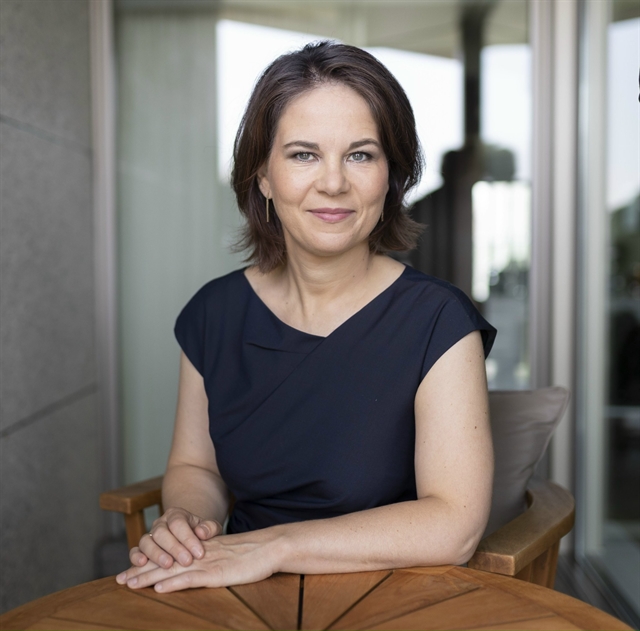.jfif) Opinion
Opinion

German Foreign Minister Annalena Baerbock on the occasion of 50 Years of Germany in the United Nations.
 |
| German Foreign Minister Annalena Baerbock. — Picture Copyright © Photothek |
Fifty years ago, on 18 September 1973, by New York’s East River, two German states joined the United Nations. This event was the result of a brief General Assembly resolution – however, it was anything but routine business in the world of diplomacy.
Almost three decades after the end of the Second World War that Germany had begun, and the genocide of Europe’s Jews that had brought immeasurable suffering to millions of people, this day marked a return of the “defeated enemy nation” to the international community. We remain grateful for this return today – and we see it as an obligation.
Germany’s accession to the United Nations came 28 years after the organisation was founded. This accession stands for our acknowledgement of German culpability and our commitment to the principles of the UN Charter, to a world that relies on the strength of the law and not the tyranny of the strong. And 18 September 1973 stands for a deeply rooted understanding of German diplomacy.
German foreign policy must never limit itself to the protection of German interests. For 75 years, our Basic Law has imposed the requirement for our policy to “promote world peace [...] in a united Europe”.
This task and our fifty years of United Nations membership are more important now than ever – at a time when fundamental principles of the United Nations are being eroded. That is why we joined over 140 states in the General Assembly in advocating for the people of Ukraine and for the principles of the Charter. Because under this Charter every state has the right to live in peace, without having to fear that a stronger neighbour will attack.
It is clear that we are living in a different geopolitical reality than in the days of the Cold War. The opposition of an Eastern and a Western bloc is, fortunately, a thing of the past. Instead, a new multipolar reality is emerging in which we must organise cooperation.
More and more states with differing views seek to help shape the international order. And rightly so. It is past time that their voices were heard more clearly.
We therefore seek to strengthen our partnerships with all states around the world who value an international order based on rules and the law.
This order is no “Western ideology”, as some now assert. On the contrary. It is rooted in the UN Charter and thus in the universal conviction that all states and all human beings have equal rights, regardless of how powerful they are, and that no state must ever again be allowed to attack a neighbour. For us Germans, these principles are also a lesson learned from the Second World War and the atrocities that Nazi Germany inflicted on its neighbours.
We Germans therefore have a particular responsibility to strengthen the UN Charter. It is for this reason, too, that we are seeking to gain a seat on the Security Council for the year 2027/28.
Those who are calling into question this order have thus far failed to indicate what principles a better, more just order should be built on.
We want to build on what was created in 1945 and has been continuously developed since then. We know that this order is imperfect and that we must adapt it to our new world.
That means finally organising our international financial institutions, and health agencies, as well as the UN Security Council, in such a way that our partners in Africa, Latin America and Asia have a suitable voice there.
It means putting the Sustainable Development Goals at the heart of the United Nations.
And it means showing more ambition in efforts to curb the climate crisis, the greatest threat of our time. With a clear road map for phasing out fossil energies. And with solidarity for the most vulnerable states, who are particularly hard hit by the effects of the climate crisis.
But honest partnerships also mean critically examining our own actions. This is why Germany has initiated the return of artefacts looted during the colonial era. Doing so will not heal all of the wounds of the past. But it is an important step in efforts to address our dark colonial history.
With our accession fifty years ago, we Germans made a promise to take on responsibility for the United Nations. Today, we do not merely stand by this promise. With our partners, we seek to find new ways to fulfil it in a changed world.
With courage and confidence.
For a strong United Nations. For a better, more just future for everyone.